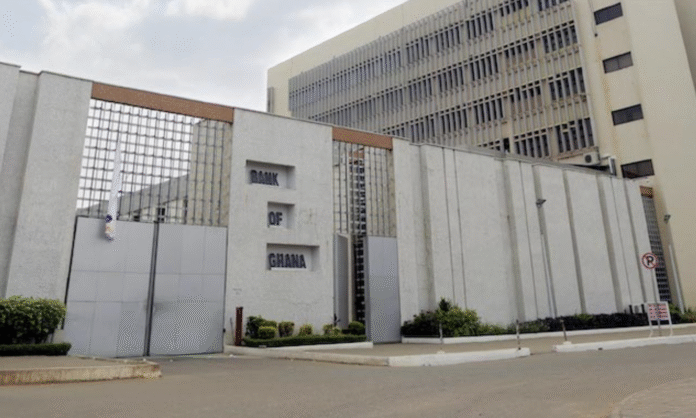
The Bank of Ghana has introduced new regulations for exchange rate application in the shipping industry to enhance transparency, pricing consistency, and compliance with its foreign exchange framework.
The guidelines, announced under Notice No. BG/GOV/SEC/2025/47 on Tuesday, and signed by Ms. Sandra Thompson, Secretary, require all shipping industry operators in Ghana to publicly disclose the daily exchange rates used for invoicing.
These rates must be posted either on company websites or at business premises and clearly communicated to customers prior to payment or invoice issuance.
Invoices are now mandated to include the service currency, the applicable exchange rate, the date of application, and the final amount payable in Ghanaian cedis (GHS) or U.S. dollars (USD).
The Central Bank emphasized that these exchange rates must reflect commercial bank market conditions and be benchmarked to the Bank’s published interbank exchange rates, warning against arbitrary pricing.
In the event of disputes over exchange rate applications, the guidelines outline a two-tier resolution mechanism:
First through the respective service providers, and subsequently through escalation to the Ghana Shippers’ Authority if complaints remain unresolved.
Second, industry participants are reminded to comply with the Foreign Exchange Act, 2006 (Act 723), alongside all related regulatory notices.
Breaches of these regulations could lead to administrative sanctions, the central bank noted.
The directive took effect immediately on July 22, 2025, and remains in force until officially amended or revoked.
DISCLAIMER: The Views, Comments, Opinions, Contributions and Statements made by Readers and Contributors on this platform do not necessarily represent the views or policy of Multimedia Group Limited.
DISCLAIMER: The Views, Comments, Opinions, Contributions and Statements made by Readers and Contributors on this platform do not necessarily represent the views or policy of Multimedia Group Limited.


